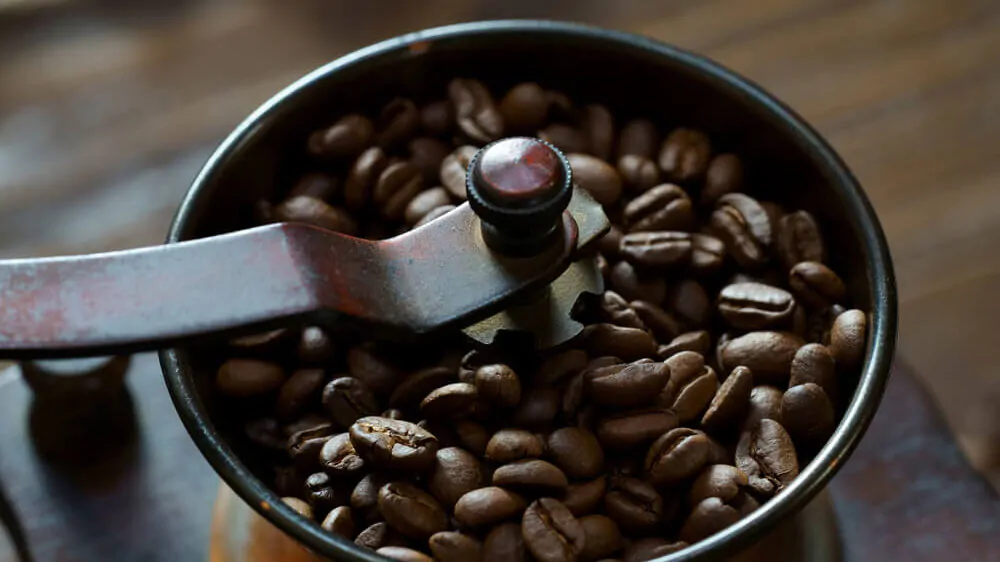Oily coffee beans can cause clogs and wear in grinders. They may deteriorate the performance of your grinder over time.
Oily coffee beans are often sought after for their rich flavor, but they pose a challenge for your coffee grinder. Beans with a shiny surface indicate a higher oil content, which, while enhancing the coffee’s taste, can lead to residue buildup in grinders.
This buildup can affect the consistency of your grind, lead to blockages, and result in uneven extraction of flavors during the brewing process. Regular maintenance is vital when using oily beans to prevent the grinder’s mechanisms from slowing down or getting damaged. Coffee aficionados must weigh the pros and cons of using oily beans, considering the potential impact on their equipment and the enjoyment of their cup of joe.

Credit: www.linkedin.com
Introduction To Coffee Beans And Oil Content
Natural oils in coffee beans come from the beans themselves. These oils are part of the bean’s identity. Roasting plays a key role in how much oil is on the surface. Light roasts usually have less oil outside. Dark roasts show more oil due to longer roast times. People often think oily beans are bad for grinders. But this isn’t always true. A clean and well-maintained grinder can handle most oily beans. Yet, too much oil can cause clogs over time. It’s important to clean your grinder often. This ensures the best performance and flavor. Regular cleaning keeps oily beans from being a problem. It also helps your coffee taste great every time.

The Impact Of Oily Coffee Beans On Grinders
Grinding oily coffee beans often leads to excess buildup within the grinder. This residue can cause the moving parts to stick or clog, affecting grinder performance. Over time, the grinder might work less efficiently.
Regularly cleaning your grinder helps avoid these issues. Simple steps include wiping away oil residue and using grinder cleaning pellets. This maintenance ensures a longer life for your grinder.
A proper cleaning routine keeps the burrs or blades in good condition. This leads to a consistent grind and superior taste. Always check the manufacturer’s recommendations for cleaning products and schedules.
Selecting The Right Grinder For Oily Coffee Beans
Choosing the right grinder for oily coffee beans is important. Burr grinders tend to handle oily beans better than blade grinders. Oils can clog blade grinders quickly, causing inconsistent grinds. A burr grinder with a good design, however, minimizes clog risks.
Grinder burrs come in ceramic or stainless steel. Ceramic burrs are less likely to rust, crucial for oily beans. Stainless steel burrs are durable but may require more cleaning due to oils.
For those with a taste for oily coffee, several grinders stand out:
| Grinder Name | Type | Burr Material |
|---|---|---|
| Baratza Virtuoso+ | Burr | Stainless Steel |
| Breville Smart Grinder Pro | Burr | Stainless Steel |
| Rancilio Rocky | Burr | Stainless Steel |
| Hario Skerton Pro | Burr | Ceramic |

Best Practices For Using Oily Coffee Beans
To keep the oil levels in your coffee beans optimal, proper storage is essential. Airtight containers prevent excess air from changing the oils in your beans. Keeping your beans in a cool, dark place can also control oil levels.
Your grinder stays sharp and clean with regular maintenance. Use a soft brush or grinder-specific cleaning product to remove oily residues. This ensures your grinder works well for longer.
Oily beans may need special brewing methods. Try a French press or espresso maker. These methods can handle oily beans better than others. They help you enjoy the rich flavors without harming your equipment.
Debunking The Myths: The Truth About Oily Coffee Beans
The relationship between oily coffee beans and grinders is often misunderstood. Common belief suggests that oily beans harm grinders, yet research shows a more complex image. Grinders can handle a range of oil levels effectively. The key is regular maintenance.
Oil content naturally varies with coffee bean type and roast level. Dark roasts typically display a shinier surface due to higher oil presence. This doesn’t automatically equate to quality issues.
Baristas and coffee roasters have shared differing views. Some argue that excessive oil can cause build-up over time. Others believe that any grinder issues are not solely due to oiliness. Ensuring clean equipment remains the unanimous recommendation.
Conclusion: Embracing The Rich World Of Oily Coffee Beans
Oily coffee beans offer a deep flavor that many love. Yet, these beans might cause issues with certain grinders. Finding the right oil level depends on your taste and your machine’s compatibility. Users should aim for a balance to maintain their equipment and enjoy their brew. Future advancements may improve grinders to handle oily beans better.
Today, the task is to know your grinder and pick coffee beans that won’t harm it. If you own a high-quality grinder, rest easy; it can likely cope with the oil. If not, consider beans with less oil on the surface. It’s all about the harmony between rich taste and machine care.
Conclusion
Grasping the nuances between bean types and your grinder is key. Oily coffee varieties can cause clogs, yet some grinders handle them with ease. Proper maintenance ensures longevity. So, opt for a grinder suited to your bean preference, and relish each aromatic cup.
Stay informed, stay grinding.
